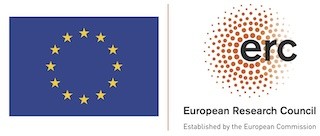Kalīla wa-Dimna is a text that is central to both Arabic and world literature. A collection of tales teaching political wisdom, it transcended languages, cultures, and religions. Throughout the centuries, the book travelled from India via the Middle East to Europe. In its course, it was translated from Sanskrit via Middle Persian and Arabic to Hebrew, Latin (under the title Directorium vitae humanae) and most European vernaculars, as well as Near Eastern, South Asian, and South-East Asian languages. Its religious and social context changed from Hinduism via Zoroastrianism to Islam, and from there to Christianity.
The work’s multilingual history involving circa forty languages has never been systematically studied. The absence of available research has made world literature ignore it, while scholars of Arabic avoided it because of its widely diverging manuscripts. AnonymClassic, an ERC-funded project at the Freie Universität Berlin, has been hard at work creating a digital edition of this complicated text with a massive manuscript tradition. In partnership with Columbia Global Centers | Amman, this series introduces the project to a broader audience through a keynote conversation and three consecutive academic workshops open to the public. All sessions will be recorded for publication via digital media.
The Arabic Versions of Kalīla wa-Dimna
Register here
Monday, July 27 (4:00 pm Berlin, 5:00 pm Amman, 10:00 am New York)
Moderated by Matthew L. Keegan
Manuscripts of Kalīla wa-Dimna: Their Relation and Redaction
Beatrice Gruendler, German Arabist and Professor of Arabic Language and Literature, Freie Universität Berlin
An Overview of the Variety of Versions of Kalīla wa-Dimna
Khouloud Khalfallah, Research Fellow, Freie Universität Berlin
Poetic Moments. The Literary Significance of Middle Arabic in Kalīla wa-Dimna Manuscripts from the Early Modern Period
Johannes Stephan, Postdoctoral Research Fellow, Freie Universität Berlin
Discussant: Devin Stewart, Professor of Arabic and Islamic Studies and MESAS Chair, Emory College of Arts and Sciences, Emory University
This workshop will be followed by Q&A.

